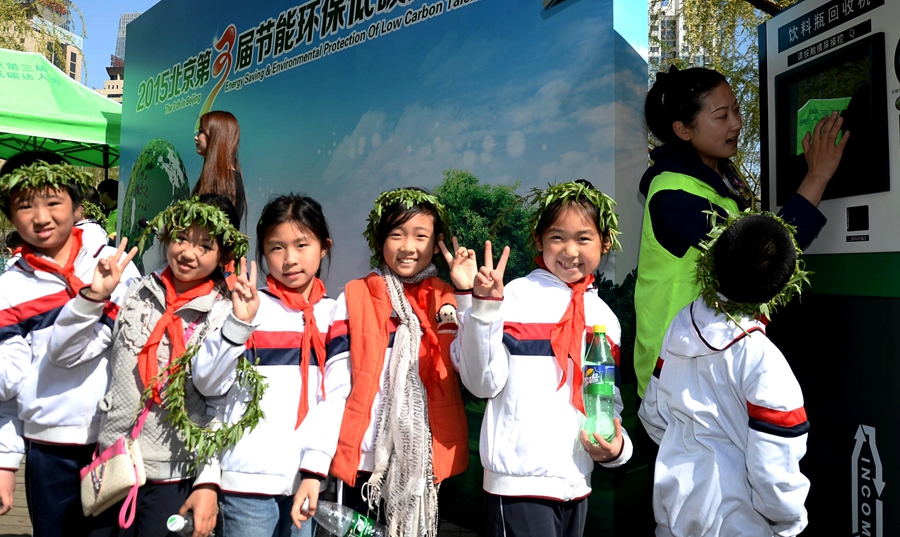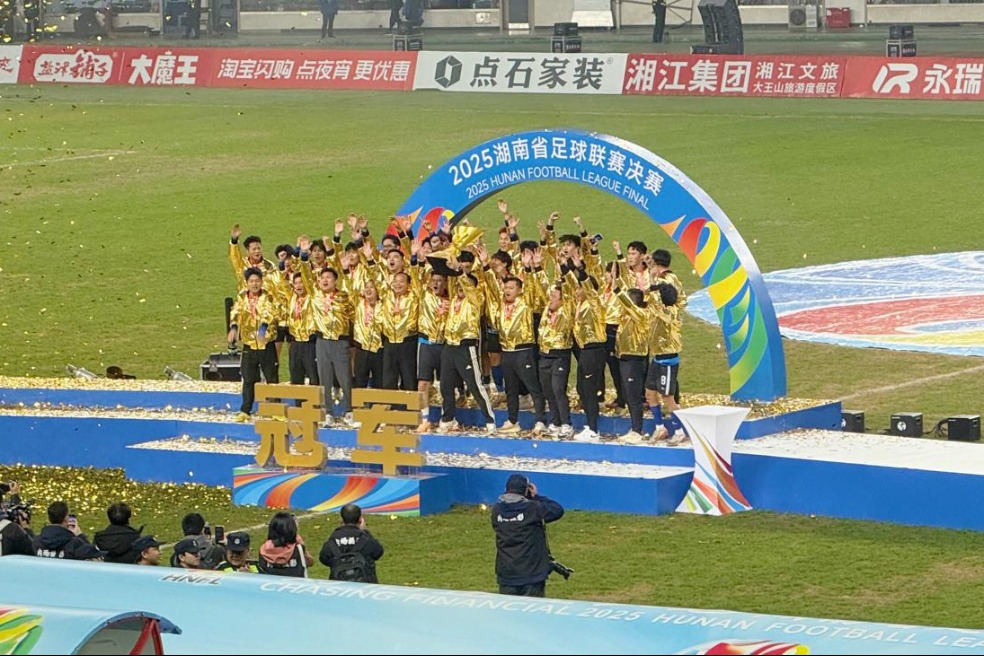How 'dirty business' is helping companies clean up on profits


Extended reach
The sector has always been profitable in China, even though the "garbage collectors" are often deprecated and their contribution to environmental protection is underestimated.
By cutting out middlemen and improving collection efficiency via the latest information technology, BGG has helped raise the recycling rate by 10 to 20 percent in nine Chinese cities where it provides services, while collectors working with the platform have seen their incomes almost double, Gui said.
"I'm optimistic about our business reaching more than 50 cities within three years. We will be providing services to more than 50,000 small businesses and collaborating with more than 100,000 collectors," she added.
BGG expects to make 1 billion yuan this year, as more of its programs are implemented nationwide.
In addition to domestic players, TerraCycle, a waste management company from Trenton, New Jersey, which won the UN Monument Award, is helping to tackle China's plastic pollution problem.
In 2016, the company arrived in China with a program sponsored by home products manufacturer Colgate to recycle used toothpaste tubes and toothbrushes. Since then, it has collected 63,000 pieces of oral care waste.
The company recently launched a contest among primary schools in Shanghai to encourage children to recycle oral care waste and collect votes on drawings themed "Green Future". The winning school will receive a 3D printer. "A green future will not happen without a clean and healthy environment - that's the educational message we want to send out," said Tom Szaky, TerraCycle's founder and CEO.
The company started in 2001 when Szaky, then a Princeton freshman, and a friend created an organic fertilizer from the excrement of worms fed on waste. To date, more than 80 million people in 21 countries have helped to collect and recycle enough waste to raise more than $21 million for charities around the world.
Last year, TerraCycle created recyclable shampoo bottles for Procter& Gamble's Head& Shoulders brand, with 25 percent of the materials coming from plastic waste collected from beaches, rivers and other waterways.
The project won the United Nations' Momentum for Change Lighthouse Activities Award in October.
Chances and challenges
TerraCycle tries to eliminate waste in three ways: by recycling everything, including cigarette butts and candy wrappers; by making products such as plastic beach buckets from waste; and by closing the recycling loop.
TerraCycle's coming to China "is a great opportunity", Szaky told Xinhua.
"The waste issue caused by consumerism has actually been raising social awareness of the problem, which means people are willing to face the issue and work to solve it," he said.
"The government has been very supportive of green and sustainable business."
Since 2012, China has promoted industries involved in energy conservation and environmental protection, or ECEP, as one of the seven emerging strategic pillars of the economy.
Meanwhile, the 13th Five-Year Plan (2016-20) set a target for the added value of ECEP industries to account for 3 percent of GDP by 2020.
Fiscal and tax support has been granted to technological researchers and businesses that provide solutions, products and services for green development.
Encouraged by these preferential policies and strong demand, China's recycling sector has seen a rising number of players.
"Waste management is crucial for public well-being and environmental protection, yet many startups, despite noble and ingenious ideas, fail because it's difficult for small businesses to maintain a profit margin, especially at the beginning," said Mao Da of Beijing Normal University, an environmental history scholar and founder of the China Zero Waste Alliance, a nongovernmental think tank.
TerraCycle maintained a 1 percent profit margin for more than a decade, and last year, the company's sales passed $20 million.
"We are changing people's habits. Getting people to care about recycling is our biggest challenge," Szaky said. "One of the most important things we do is educate people. We raise awareness of the issue and let people know that the environment is worth the cost."
The company also provides incentives. For example, it awards consumers points based on how much material they recycle, and the points can be converted into cash donations to charities.
However, changing people's habits through education may take too long to address the critical pollution issues, according to Liu of Incom Recycle. She urged authorities to use legal procedures to determine and outline producers' responsibilities in the recycling process.
"To our knowledge, more than 50 countries and regions around the world have implemented laws and regulations to establish recycling obligations for producers," she said.
- China releases survey report on coral reef ecosystem of Huangyan Island
- PLA strikes mobile ground targets in drills in middle areas of Taiwan Strait
- Legislation revised on spoken, written Chinese usage
- Amendment adds green focus for fishing industry
- Winter crayfish harvest secures year-round supply
- Death sparks discussion on solo living





































